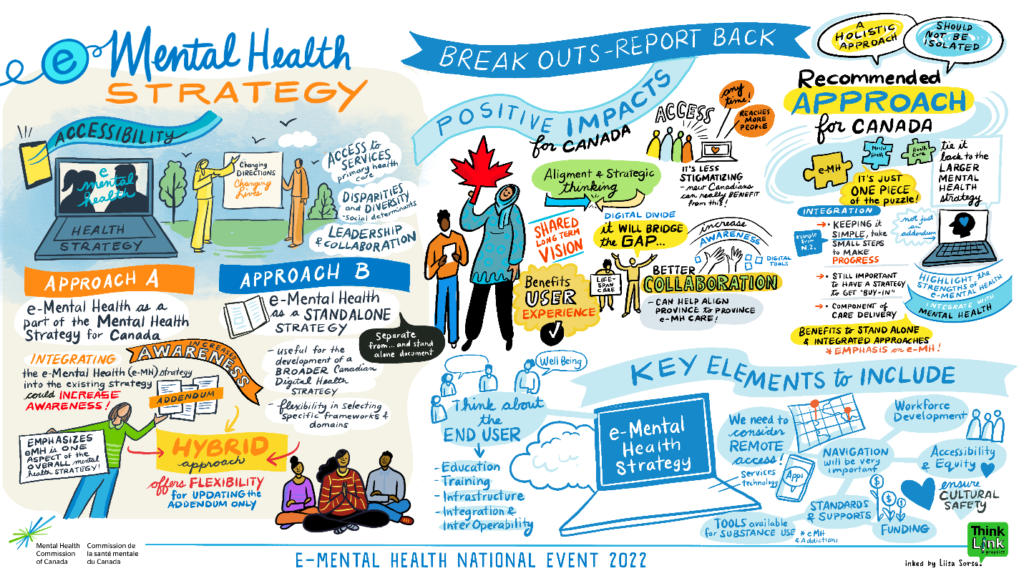As such, I have spent much of my personal and professional energies devoted to helping people access the help they need when, where and how they need it most. I’ve accomplished this at an organizational and provincial level through designing, implementing and evaluating mental health programs and services, and at a more grassroots level working directly with clients in my own practice.
In my role as a Board Member at Eli’s Place, I’m honoured to be able to be part of an organization that is charting a course to provide a unique and much-needed care option for those in need, specifically, to create a rural, residential therapeutic community for young adults 18-35 years of age struggling with serious mental illness. I strongly believe that when we have realized our goal of providing much-needed services through Eli’s Place, we will fundamentally enhance the lives of those we serve and the people and communities of support around them.
In addition to my work at Eli’s Place, I sit on the E-Mental Health Collaborative Expert Working Group at the Mental Health Commission of Canada (i.e., MHCC). The purpose of our group is to bring together sector expertise to contribute to the Commission’s work in the space of e-Mental Health. We engage in knowledge exchange activities and undertakings and provide input and consultation to the MHCC to help guide their decision-making on priority areas and initiatives.
Some of the resources developed by the MHCC can be accessed here
Over my time on the Collaborative, I’ve had the opportunity to participate in many exciting, innovative, and engaging forums, projects and activities. Most recently, I co-chaired a National E-Mental Health Strategy working group. The purpose of this group was to provide recommendations to the Commission about where best to position the National E-Mental Health Strategy. The options included having this be a standalone strategy, incorporating it into the 2012 Mental Health National Strategy for Canada (Changing Directions, Changing Lives; The Mental Health Strategy for Canada), or proceeding with a hybrid option which would see the E-Mental Health Strategy delivered as a separate, yet related document associated with the National Strategy.
After weeks of deliberations and discussions amongst informed and engaged group members, my Co-Chair and I were able to present our findings at a National Event which brought together national and international thought leaders within the e-mental health community. The Event included knowledge sharing and informed discussions about e-mental health strategy (both national and global) and, during the event, the recommendations of the E-Mental Health National Strategy Working Group, as well as other presentations and discussions were captured in the infographic below (shared with permission of the MHCC).

In addition to the above, another area that I’ve had the privilege of participating in through my work with the MHCC is the discussion of accrediting mental health applications (i.e., “apps”).
Digital mental health is shown to be effective and capable of providing the right mental health care solutions when and where people need it most. However, it is widely accepted that there is a need to accredit mental health apps to ensure they are evidence-informed, meet relevant standards, regulations and legislation, and provide quality care for people living in Canada. With a marked increase in the use and development of mental health apps during the pandemic, it was recognized that more specificity and coordination was needed around apps designed for mental health care delivery.

In an Environmental Scan performed in July 2021
The Organization for the Review of Care and Health Apps (ORCHA) and the Mental Health Commission of Canada found that there are over 365,000 digital health apps, including those that are web-based technologies, currently on the market.
Since the start of the pandemic, there has been a significant increase in the downloads of digital health technologies rising to 5 million downloads a day. Approximately 80% of healthcare professionals are using smartphones and medical apps, and 93% believe that these apps will help those looking to improve their health and well-being. In a follow-up technology review, ORCHA reviewed 584 mental health applications available in Canada. On the whole, this scan and other research demonstrate that some apps have proven mental health benefits and some may make mental health services more accessible by decreasing barriers such as cost, geography, and stigma. However, others may be ineffective, potentially unsafe, or have serious privacy/security flaws.
In light of the above, the MHCC began a needs assessment in 2021 in partnership with the Organization for the Review of Care and Health Apps (ORCHA) to determine key elements of national standards for mental health apps. I was fortunate enough to be part of discussions with 200 stakeholders with an array of perspectives (lived/living experience, providers, app developers/designers, policymakers, researchers, health executives) from across Canada.

Following these discussions…
The first draft of standards was developed spanning six domains: (i) data and privacy (ii) clinical evidence (iii) clinical safety (iv) usability and accessibility (v) security and technical stability and (vi) cultural safety, social responsibility, and equity. The next step of this work is the current sharing of a second draft of the standards for public review (https://linktr.ee/MHCCAFMHA). The review is open until June 29, 2022.
On the whole, the breadth of my experience and participation in different Mental Health initiatives and forums helps me to understand the real value of the unique offerings we plan to deliver through Eli’s Place; to truly meet the needs of all, mental health care delivery needs to be accessible, acceptable and timely and is best delivered through a multi-faceted approach. Apps and E-mental health strategies are one important aspect of service delivery, and efforts to ensure the safety, security and effectiveness of these technologies will enhance our confidence in their use over time. Eventually, they will likely be part of our service delivery model at Eli’s Place to ensure that we are delivering timely and accessible care to those in need.
Eli’s Place will be a rural, residential treatment program for young adults with serious mental illness. To learn more about our mission and our proven-effective model click here.

Dr. Deanne Simms | Eli’s Place Board Member
Dr. Simms is a valued member of the Eli’s Place Board. As a clinical psychologist, Deanne has a wealth of experience in both public and private mental healthcare delivery. As the President and CEO of ThriveSpace Health and Wellness, Deanne’s expertise in digital health tools is evidenced in her work with individuals, organizations, and health structures.




